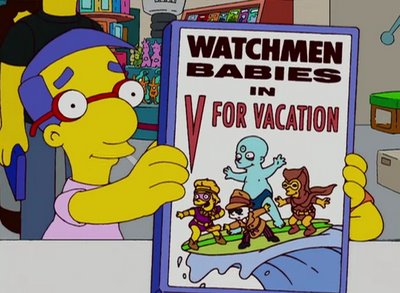CFP: Magus: Transdisciplinary Approaches to the Work of Alan Moore (Dec 4; May 28-29)
Transdisciplinary Approaches
to the Work of Alan Moore
28th and 29th May 2010
Avenue Campus, The University of Northampton
United Kingdom
Alan Moore has consistently been at the forefront of the graphic novel medium for almost thirty years, being the iconic figure behind such pioneering works as Marvelman and V for Vendetta, the revolutionary Watchmen, to From Hell, Promethea and, most recently, Lost Girls to name but a few. Alongside his work in the comic medium he has written one novel, Voices from the Fire [sic], and is subsequently working on the ambitious Jerusalem project. He has also worked as a graphic artist, performed and recorded a series of musical collaborations largely related to site-specific events, and in recent years has become a magician.
While Moore’s contribution to the comic medium is undisputed, academic appraisals of his work have been fragmentary and there have been no dedicated scholarly events to date that seek to give an overview of his oeuvre. As such The University of Northampton is pleased to announce Magus: Transdisciplinary Approaches to the Work of Alan Moore, an interdisciplinary conference that will bring together not only appraisals of Moore’s comic works, but also his wider cultural manifestations and their significance at the start of the 21st century. Given his burgeoning literary and cultural importance, Moore’s significant profile in the wake of several recent Hollywood adaptations of his work (despite his own antipathy towards those adaptations and their place within the culture industries), and the relationship to Northampton’s cultural landscape (both physical and psychic) that recurs throughout his work, both the time and location are fitting for a dedicated appraisal of his cultural legacy thus far.
The review panel are seeking papers for the conference, or proposals for potential panels on a particular subject. We invite presentations from the perspective of any discipline; literary studies, cultural studies, film studies, art, philosophy, linguistics, politics, sociology and others.
Potential topics for papers or panels might include, but are not restricted to:
- Comic revisionism and the graphic novel
- Comics and literature
- The political philosophy of Moore’s canon
- Moore’s relationship to the mainstream comic industry
- Adaptations of Moore’s work to screen and other media
- Psychogeography and place in Moore’s work
- Magick and spirituality
- Site-specific events
- Pornography and erotica in Moore’s work
- Fandom and reception
- The underground press
- Collaborations and networks
- Music and musical collaborations
- Intertextuality and referentiality
Abstracts of no more than 300 words, accompanied by a short biography of no more than 100 words should be submitted to the conference review panel by 4th December 2009.
For more information on the conference or to submit an abstract email Nathan Wiseman-Trowse at nathan.wiseman-trowse@northampton.ac.uk.
Full details of registration, plenary speakers and accommodation will be announced shortly.
Dr Nathan Wiseman-Trowse
Senior Lecturer in Popular Culture
The School of the Arts
The University of Northampton
Avenue Campus
St George’s Avenue
Northampton
NN2 6JD
United Kingdom
Labels: A Moore, academic, cfps, conferences, Watchmen




